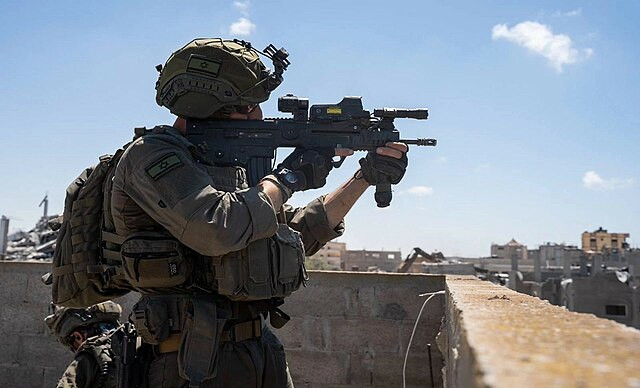Efforts to broker a ceasefire agreement between Israel and Hamas have stalled amid mutual accusations of sabotage, despite reports of progress in recent negotiations mediated by Qatar, Egypt, and the United States. The talks, which raised hopes for a phased agreement, have been overshadowed by a renewed war of words and escalating hostilities on the ground.
Hamas accused Israel of introducing new conditions related to withdrawal, ceasefire terms, prisoner exchanges, and the return of displaced individuals. "The occupation has set new conditions... which has delayed reaching the agreement that was available," Hamas stated, emphasizing its willingness to show flexibility and engage in serious discussions.
Israeli Prime Minister Benjamin Netanyahu countered by accusing Hamas of reneging on prior agreements. "The Hamas terrorist organization continues to lie, is reneging on understandings that have already been reached, and is continuing to create difficulties in the negotiations," Netanyahu said in a statement. Despite the setbacks, Netanyahu reaffirmed Israel's commitment to securing the release of hostages held in Gaza.
Negotiations in Doha this week appeared to make headway, with Israeli representatives returning home Tuesday after what was described as a significant round of talks. Reports earlier this week suggested that the deal was 90% complete, sparking optimism for a resolution. However, the recent exchange of accusations has tempered those expectations.
The proposed agreement reportedly includes multiple phases: an initial cessation of hostilities, an exchange of Israeli hostages for Palestinian prisoners, and increased humanitarian aid to Gaza. A final phase would involve the release of all remaining hostages, though Israeli officials have noted that Hamas may not have located all captives. Of the 96 hostages still held in Gaza, Israel believes 62 are alive.
Israeli President Isaac Herzog urged leaders to intensify their efforts to secure a deal. "I call on our leadership to act with all its power and with all the means at our disposal to bring about a deal," Herzog said. His remarks followed similar calls for decisive action as frustration grows over the protracted nature of the conflict.
The impasse comes as Israeli forces intensify their military campaign in northern Gaza, targeting areas including Beit Lahiya, Beit Hanoun, and Jabalia. Strikes in Gaza City's Sheikh Radwan suburb hit a former school sheltering displaced families, killing at least 24 people, according to local health officials. The Israeli military reported targeting Hamas operatives in several areas, maintaining that its actions are focused on neutralizing threats to Israeli security.
The humanitarian toll continues to mount, with more than 45,300 Palestinians killed since the conflict's escalation in October 2023, according to health officials in the Hamas-controlled enclave. Most of Gaza's 2.3 million residents have been displaced, and infrastructure across the region lies in ruins. Meanwhile, Palestinians have accused Israel of seeking to depopulate northern Gaza permanently, a claim Israeli officials deny.
The ongoing conflict was sparked by Hamas' October 7, 2023, attack on southern Israel, which killed 1,200 people and saw 251 taken hostage. In response, Israel launched an extensive military campaign aimed at dismantling Hamas' rule over Gaza. Israeli Defense Minister Israel Katz emphasized that Israel will retain security control over Gaza through buffer zones and control posts to prevent future threats.




